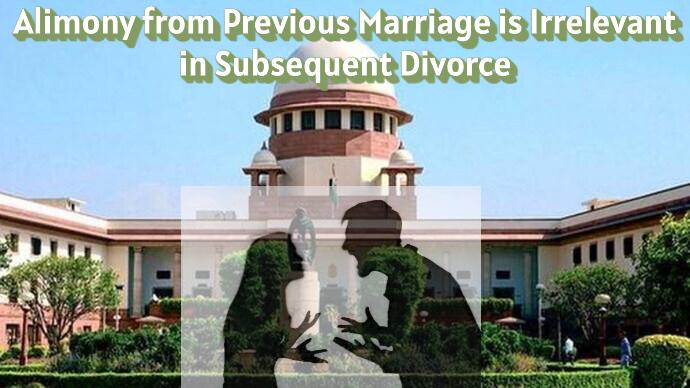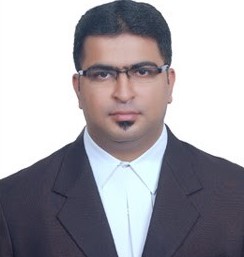
Can a wife get alimony from her second divorce, while she had received from her first divorce?
Alimony received from a first divorce is generally considered irrelevant by the courts in India, when determining alimony in a subsequent divorce case. Each divorce and subsequent financial settlement are treated as separate legal matters, thus suggesting when a man and woman enters into a marriage a whole new chapter unfolds. The court focuses on the specific circumstances of the current marriage and the financial needs of the parties involved in the second divorce. Matrimonial cases are decided based on the specifics of that man and woman; there is no fixed matrix to decide the quantum of alimony or maintenance.
Reasons:
- Separate Legal Entities:
Each marriage is considered to be a separate legal entity, and the obligations and entitlements arising from its dissolution are distinct. - Focus on Current Needs:
The court’s primary concern in a divorce case is the financial situation of the couple involved in that particular marriage, including their current income, assets, and living expenses. - No Impact on Second Marriage:
A previous alimony received from a first divorce does not reduce, deny, or influence the alimony or settlement in a second marriage, according to legal experts. Only the thing that matters is the financial condition of the woman during the subsequent marriage and most importantly at the time of divorce.
- Example:
If a wife received alimony in a prior divorce, this would not be a valid reason to deny her alimony in a subsequent divorce if she can demonstrate a need for support based on her current circumstances.
- Each marriage is distinct:
When a couple gets married new legal ties are established, in case of a wife receiving periodic maintenance from the previous divorce, it ceases. The alimony which is a one-time settlement cannot be reversed in case the receiving spouse gets married. The Indian Courts have emphasized that a previous marriage, divorce and its associated alimony settlement should not influence the financial obligations or entitlements arising from a subsequent marriage. - Focus on the present:
Alimony in a second divorce is determined by factors relevant to that specific marriage, such as the financial needs and resources of both parties, their respective earning capacities, and the duration and circumstances of the second marriage. - No automatic offset:
A previous alimony settlement does not automatically reduce the amount of alimony payable in a second marriage. The permanent alimony will be decided based on the financial health of the couple individually. The court will assess the current situation and make a determination based on that.
Recent Judgement:
Background & Core Dispute
This case arose from a highly acrimonious marriage between Appellant-Husband and the 2nd Respondent -Wife that lasted only 1 year and 9 months but led to 8 years of litigation. The husband appealed to the Supreme Court after the Bombay High Court refused to quash criminal proceedings (under Section 498-A IPC for cruelty) filed against him by his wife.
Key Events
- Marriage & Separation: The couple married in July 2015. The husband claimed he left the matrimonial home in Mumbai in April 2017 due to harassment and moved to Faridabad to care for his autistic child from his first marriage. The wife alleged he abandoned her without support.
- Legal Onslaught: The wife filed multiple cases:
- A complaint u/s 498-A IPC in April 2018.
- A case under the Domestic Violence Act, 2005.
- Settlement & Resilement: In 2022, during divorce proceedings, the parties reached a settlement through court-mediated mediation. Key terms:
- The husband would gift his Mumbai apartment (valued at ~₹4 crores) to the wife.
- The wife would pay off the outstanding loan on it (which she did with a ~₹10 lakh draft).
- Both would withdraw all cases against each other.
- They filed the first motion for mutual consent divorce.
- However, before the second motion, the wife resiled from the agreement without a reasonable cause, demanding ₹12 crores in permanent alimony in addition to the apartment.
Supreme Court’s Analysis & Key Findings
- On Criminal Charges (498-A IPC): The Court scrutinized the wife’s complaint and found the allegations to be “common-place, banal and vague” without specific instances. It was filed a year after separation and reflected nothing more than “ordinary marital squabbles blown out of proportion.” Applying the principles from State of Haryana v. Bhajan Lal (1992 Supp. (1) SCC 335), the Court held that the FIR did not prima facie constitute an offence and continuing the trial would be an abuse of the legal process.
- On the Settlement Agreement: The Court found the wife’s allegations that the settlement was signed under coercion, misrepresentation, or fraud to be unsubstantiated and “bland.” Her conduct—like paying the loan amount—showed she had initially agreed to the terms willingly. Her resilement appeared to be a tactic to extract a better financial deal.
- On Financial Status:
- The husband claimed he had resigned from his lucrative job at Citibank and was currently unemployed, a fact supported by his declining Income Tax Returns.
- The wife, a qualified engineer with an MBA, was gainfully employed at the time of separation. The Court refused to rely on her LinkedIn profile to contradict the husband’s claims.
- The Court noted the husband’s responsibility towards his autistic minor child.
- On Irretrievable Breakdown: The Court found the marriage had “irretrievably broken down” and was “emotionally dead.” Citing its powers under Article 142 of the Constitution to do complete justice, and following the precedent in Shilpa Sailesh v. Varun Sreenivasan (2023) 14 SCC 231, the Court decided to dissolve the marriage itself.
- On Alimony Received from Previous Marriage: The husband had argued that the wife had received alimony from her first marriage, hence to consider that while deciding the alimony in the present divorce case. The court observed that at the outset the alimony received by the respondent on the dissolution of her first marriage is not a relevant consideration.
Final Order & Terms
The Supreme Court allowed the husband’s appeal and passed the following orders:
- Quashing of Criminal Case: The proceedings u/s 498-A/406 IPC pending before the Mumbai Magistrate Court were quashed.
- Dissolution of Marriage: The marriage between the appellant and the respondent was dissolved on the ground of irretrievable breakdown.
- Terms for Settlement:
- The husband must pay all outstanding maintenance charges for the Mumbai apartment to the housing society.
- He must then execute and register a gift deed transferring the apartment and two parking spaces to the wife by August 30, 2025.
- The wife must cooperate. If she fails to appear for registration, the divorce will still take effect on September 15, 2025.
- If the husband fails to execute the deed, the divorce order will not take effect.
- Closure of All Proceedings: All other civil and criminal cases between the parties related to this marriage were to be closed immediately. Neither party could initiate any further proceedings against the other concerning this marriage.
Conclusion
The Supreme Court intervened decisively to end nearly a decade of litigation. It found the criminal case devoid of merit and quashed it. Using its extraordinary powers under Article 142, it dissolved the dead marriage and enforced the original settlement, granting the wife a valuable apartment as a one-time settlement and protecting the husband from further claims and litigation. The judgment emphasizes the court’s role in halting the misuse of criminal law in matrimonial disputes and promoting finality. It also reiterated that the alimony received from the previous divorce is not relevant while deciding the alimony in the subsequent divorce.
For the complete judgement click here.

Advocate Kiran S R – A highly skilled, passionate, dedicated advocate, with vast wealth of knowledge, professionalism, ethical approach and expert skills. One of the sharpest legal mindset brings the best principles of legal practice to the forefront. A qualified Engineer turned Advocate. His passion, dedication and vision to help and assist his clients achieve the best results is his driving force.

